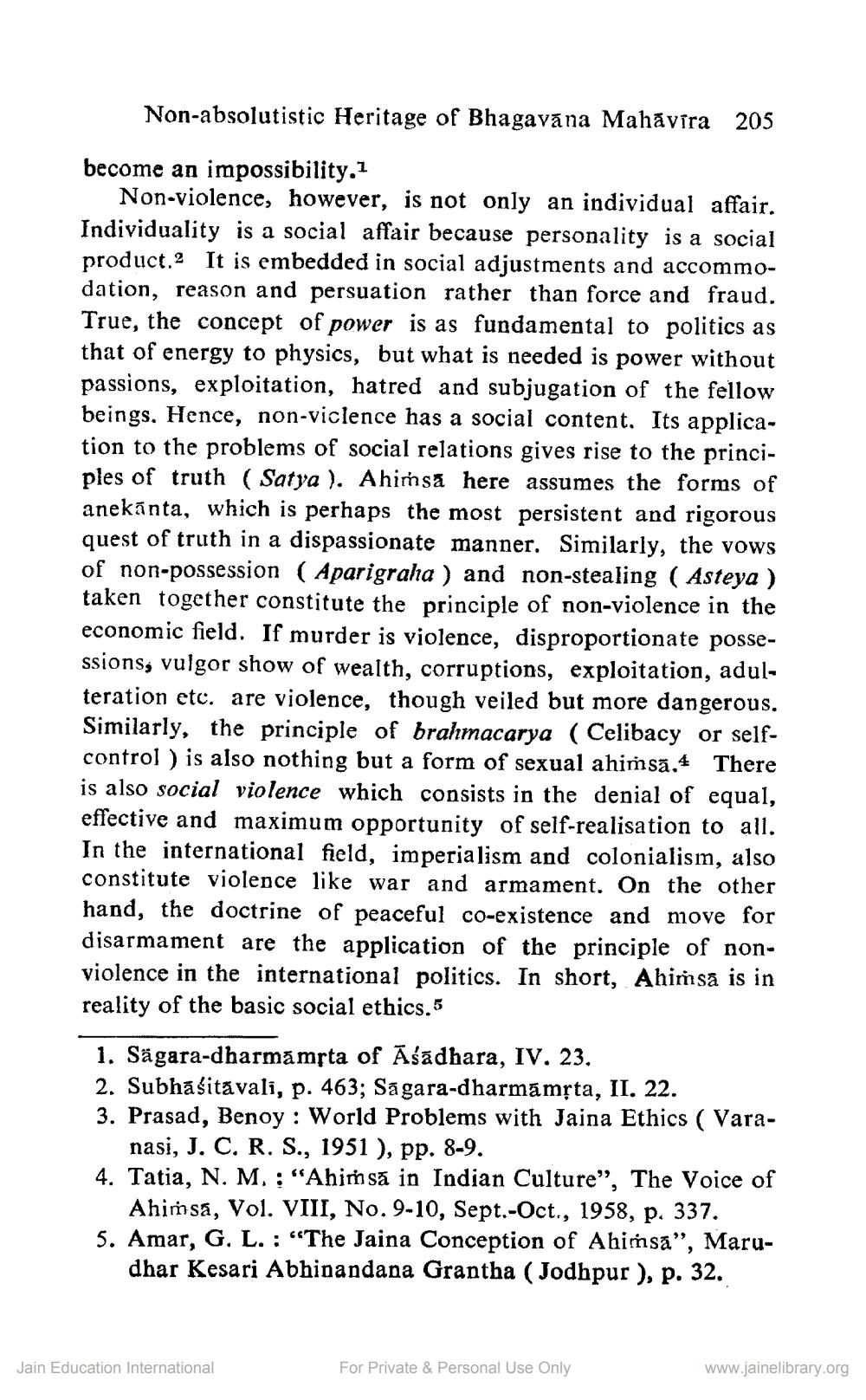________________
Non-absolutistic Heritage of Bhagavāna Mahāvīra 205
become an impossibility.1
Non-violence, however, is not only an individual affair. Individuality is a social affair because personality is a social product.2 It is embedded in social adjustments and accommodation, reason and persuation rather than force and fraud. True, the concept of power is as fundamental to politics as that of energy to physics, but what is needed is power without passions, exploitation, hatred and subjugation of the fellow beings. Hence, non-viclence has a social content. Its application to the problems of social relations gives rise to the principles of truth (Satya ). Ahimsa here assumes the forms of anekānta, which is perhaps the most persistent and rigorous quest of truth in a dispassionate manner. Similarly, the vows of non-possession ( Aparigraha ) and non-stealing ( Asteya ) taken together constitute the principle of non-violence in the economic field. If murder is violence, disproportionate possessions, vulgor show of wealth, corruptions, exploitation, adulteration etc. are violence, though veiled but more dangerous. Similarly, the principle of brahmacarya (Celibacy or selfcontrol ) is also nothing but a form of sexual ahimsā4 There is also social violence which consists in the denial of equal, effective and maximum opportunity of self-realisation to all. In the international field, imperialism and colonialism, also constitute violence like war and armament. On the other hand, the doctrine of peaceful co-existence and move for disarmament are the application of the principle of nonviolence in the international politics. In short, Ahimsa is in reality of the basic social ethics.5
1. Sägara-dharmāmsta of Āsādhara, IV. 23. 2. Subhasitavali, p. 463; Sāgara-dharmámộta, II. 22. 3. Prasad, Benoy: World Problems with Jaina Ethics ( Vara
nasi, J. C. R. S., 1951 ), pp. 8-9. 4. Tatia, N. M.: "Ahińsă in Indian Culture", The Voice of
Ahimsa, Vol. VIII, No. 9-10, Sept.-Oct., 1958, p. 337. 5. Amar, G, L. : "The Jaina Conception of Ahimsa", Maru
dhar Kesari Abhinandana Grantha (Jodhpur ), p. 32.
Jain Education International
For Private & Personal Use Only
www.jainelibrary.org




